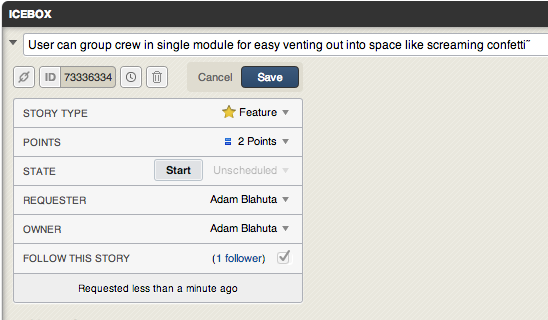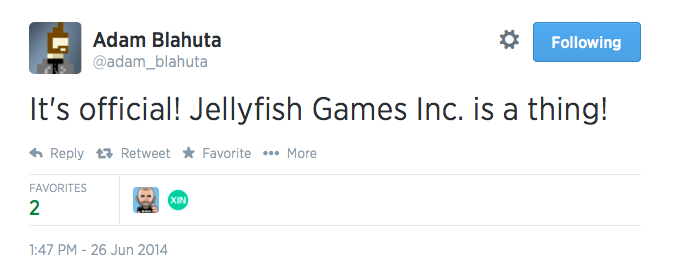By now, you know that we really like to talk about game design around here. However, making games isn’t just about slinging code, and pushing pixels.
What’s in a game?
Making them involves getting many tasks to come together at the right time to ensure that a working product eventually makes it onto your computers. Certainly, every little thing that can happen in the game needs to be thought out and coded, art and sound needs to be produced to give you something to look at while you’re playing. But we have to keep showing you that Astrobase Command is alive, well, and progressing at a good clip through periodic updates. We need to plan some events and come up with clever ways to keep building the community. We need to have meetings to keep everything on track.
The business end
There’s also a business aspect that we have to tend to, ensuring that proper the governance and processes are in place to give us access to the right tools to ultimately deliver the game around the world, and then keep making more games in the future.

Yep. Lawyers and accountants help make games, too. (Part of our general Trello business development to-do list)
Speaking of which, Jellyfish Games Inc. is a thing now
Tools of the trade
Keeping track of all of the things that need to get done leads to expansive lists that could cover our office walls. We could capture all of the information on paper, but that would likely end up meaning we’d lose some important detail, or that a member of the team doesn’t realize he had something that needed getting done in less time than it takes to perform a Syraxian greeting ritual. Since we don’t have the benefit of having mountains of cash to bankroll our activities, we have to be creative and economical in selecting the tools we use to help us manage things.
Thankfully, there is a wealth of options out there for the new and cash-strapped devs. Some are free, and some have a minimal associated usage fee. They may not have all the bells and whistles that large corporations may need, but for a sleek (and good-looking!) team like ours, they work fine.
We’re currently using Trello as a way to keep track of general checklists of things to do, but there are other options out there like Jirga and Pivotal Tracker. Indeed, we’re using Pivotal Tracker’s more powerful management tools to track detailed task requirements and project velocity.
This isn’t an endorsement of any of the tools mentioned, but should help you find something that could come in handy if you’re currently looking.
![]()
Pivotal Tracker’s tools allow a high level of granularity in task management.
So many files
Once you know where you’re at, and where you’re going, you need some mechanism to store files, communicate internally and to the outside world, and manage your calendar. We’re currently trying Google’s lineup of services for this, but we always keep our eyes and minds open for something that could work better. This allows us to keep things like spreadsheets and a wiki in an easy to access place for all of us to refer to as needed.
That’s it for now. It’s certainly not as sexy as showing aliens getting sucked into space through a hull breach, but just as important if we are going to get the best game possible into your hands.
Stay tuned for more! In the meantime, we’re busy tallying up other important features.

The most important feature for a space game.

